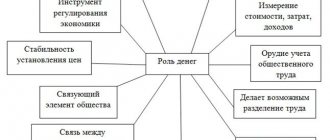The topic “Love and Hate” has excited the minds of philosophers and writers for many centuries, and today it is covered in detail in written works on the Russian language, in particular the OGE, where essay 15.3 requires arguments from fiction and life. It is not for nothing that moral and ethical issues are raised in examination papers; they allow one to evaluate the moral development of a graduate and his ability to defend his own point of view. A high school student must be able to express his opinion based on the experience of other people.
Arguments
- Hatred can only be healed by love.
- Love is not always mutual, there are betrayals and betrayals.
- People hide love inside themselves, fearing the judgment of others.
- Some people love all their lives, but do not admit it even to themselves.
- Love and hate are like two sides of the same coin - only a thin line separates them.
- You can only hate someone close to you.
- Hatred comes after love and not the other way around.
- Love is different for everyone, but hatred is the same.
- A person cannot live happily without love.
- There is no writer, poet or musician who would not sing about love.
Essay on the topic of hatred of a person
A person lives among people, and everyone who surrounds him relates to him in some way. Some people like him, but others can't stand him. What can be done to reduce hatred in the world? I. Ilyin devotes his reasoning to this problem. There is no doubt that this problem is important to all of us and it is not easy to solve. The author examines the issue of relationships between people in a philosophical manner, comparing emotions with rays: a light ray means a high and good feeling, and a black one means antipathy and hatred. The writer also offers ways to solve the problem, seeing them in the fact that a person should not respond with evil to evil, hatred to hatred, he should try to show sympathy and understanding, treat the enemy as a spiritually sick person and strive to help him rather than cause harm unnecessary suffering. The author expresses his opinion on this issue quite clearly: he is confident that hatred can only be overcome with kindness and understanding. Hatred is a wound of the spirit, a new wound will not help to heal it - only love is capable of this as something opposite to a hostile feeling. It seems to me that the author is right in many respects, except that I doubt that it is always possible to fight hatred in all cases. After all, there are situations when we are talking about something truly terrible: for example, terrorism. In these cases, hatred is not, to continue the author’s comparison, an accidental disease. It is deliberately induced in oneself so that ruthlessness towards victims appears. If we talk about ordinary relationships between people, then, of course, it is difficult to argue with the author on this issue. To illustrate my opinion, I would like to cite the example of A.S. Pushkin’s novel “The Captain’s Daughter.” The hero of this work, Pyotr Grinev, is in some strange and even inexplicable relationship with Pugachev, a murderer and robber. And the reason for this is simply that Petrusha treats the impostor humanly, without hatred and contempt, tries to convince him to repent, hopes for his salvation. And Pugachev’s temper is overcome by the kindness and sympathy of the young nobleman. As an argument, I would also like to turn to the work of A. Kondratiev “Sashka”, the main character of which does not hate the captured fascist soldier, because he no longer perceives him as an enemy. He even feels sorry for the German and thereby wins a moral victory both over him and over himself, rising to a deep understanding of the essence of humanity: a person must remain human even in war, without humiliating himself to brutal hatred. Each of us must find the strength not to increase evil in the world by succumbing to hostility and contempt, but to counter these feelings with pity and understanding. This is what it means to be a kind person. More examples of essays for the Unified State Exam in the Russian language Material prepared by Elena Valerievna Safonova, teacher of the highest qualification category, State Educational Institution SKOSHI No. 31, Moscow Source text: (1) Each person is a living, radiating personal center. (2) Every look, every word, every smile, every deed radiates a special energy of heat and light into the common spiritual ether of existence. (3) And even when a person, apparently not manifesting himself in anything, is simply nearby, we feel the rays he sends. (4) And, moreover, the stronger, the more definite and intense, the more significant and unique his spiritual personality. (5) Receiving the first perception of someone else’s antipathy, we feel that the life rays we send are not accepted by the other person, are repelled or stubbornly not allowed into ourselves. (6) This is already unpleasant and painful. (7) This may cause us some confusion or even confusion. (8) A strange feeling of failure, or one’s own ineptitude, or even the irrelevance of one’s existence arises in the soul. (9) The will to communicate is suppressed, the rays do not want to be emitted, words cannot be found, the uplift of life ceases, the heart is ready to close. (10) Closed and uncommunicative people often evoke such a feeling in sociable and expansive people, even when antipathy is out of the question. (11) But antipathy, once it arises, intensifies to hostility, thickens into disgust and deepens to hatred. (12) When I encounter real hatred towards me in life, a feeling of great unhappiness awakens in me, then grief and a feeling of my powerlessness. (13) Following this, I experience a persistent desire to leave my hater at all costs, disappear from his sight, never meet him again and not know anything about him. (14) If this succeeds, then I quickly calm down, but then I soon notice that some kind of dejection and heaviness remain in my soul, for the black rays of his hatred still overtake me, penetrating to me through the common ethereal space. (15) Then I begin to involuntarily feel for his hating soul and see myself in its black rays as their object and victim. (16) A wound has formed in the spiritual ether of the world; it needs to be healed and healed. (17) My hater must forgive me and reconcile with me. (18) He must experience the joy that I live in this world, and give me the opportunity to rejoice in his existence. (19) For, according to the words of the great Orthodox sage Seraphim of Sarov, “man is a joy to man.” (20) First of all, I need to find and establish whether it is not my fault that we are both now suffering: he, the hater, and I, the hated? (21) Maybe I accidentally touched some old, unhealed wound in his heart? (22) After that, I need to forgive him for his hatred. (23) I shouldn’t, I don’t dare respond to his black ray with the same black ray of contempt and rejection. (24) I should not shy away from meeting him; I have no right to escape. (25) From now on, I will meet the ray of his hatred with a white ray, clear, meek, kind, forgiving and seeking forgiveness. (26) I must treat my hater the way a seriously ill person is treated, without exposing him to new, additional suffering. (27) I must send him understanding, forgiveness and love in my rays until he restores the thread leading to me that he broke. Hatred is healed by love and only love. (29) The ray of true love tames wild animals. (Z0) The radiation of love has a pacifying and disarming effect. (31) The tension of anger dissipates: the evil instinct is lost, gives way and is drawn into an atmosphere of peace and harmony. (32) All these are not empty words: love conjures storms and pacifies the spiritual ether of the universe. (33) And if one day this happens, his hatred will be transformed and the wound of the spiritual ether will be healed and healed. (34) Then we will both rejoice in the joy of deliverance and hear how high above us everything, rejoicing, celebrates up to the seventh heaven, for God’s fabric of love is one and integral throughout the entire Universe. (According to I.A. Ilyin.) Ilyin Ivan Alexandrovich (1883-1954) - Russian philosopher, writer, publicist, author of the book “The Singing Heart. A book of quiet contemplations."
Epithets for the word “love”
Maternal, platonic, irreconcilable, great, big, strong, inspiring, amazing, extraordinary, unique, long-awaited, sincere, true, pure, real, new, maiden, filial, daughter, parental, comprehensive, selfless, ardent, selfless, passionate, sacrificial, fiery, unspent, all-consuming, sublime, unconditional, boundless, measureless, limitless, devoted, reverent, youthful, tender, unearthly, mutual, fatherly, reverent, romantic, paternal, impossible, sensual, active, enthusiastic, universal, universal, sentimental, chivalrous, unchanging, teenage, respectful, last, first, inexplicable, immortal, notorious, glorified, frantic, special, touching, immaculate, genuine, golden, boundless, joyful, sensitive, holy, invincible, inexhaustible, rebellious, contemplative, imperishable, meek, unspeakable, sublime, wordless.
Unrequited, unrequited, painful, painful, murderous, burdensome, gloomy, cruel, cold, suffered, lost, lost, corrupt, hopeless, unhappy, failed, unspoken, unhappy, undivided, unsatisfied, forbidden, reckless, sinful, failed, insane, fanatical, jealous, unsatisfied, perverted, belated, blind, bad, strange, fleeting, joyless, rejected, ghostly, vicious, selfish, deceitful, deadly.
Epithets for the word “hatred”
Frank, strong, mutual, strong, unexpected, constant, instinctive, unconcealed, undisguised, obvious, stable, inexplicable, unexpected, long-standing, growing, innate, acquired, sharp, former, hidden, special, universal, deep, burning, deaf, noticeable, sharp, former, strong, noticeable, incomprehensible, sudden, cold, all-consuming, boundless, large, monstrous, own, terrifying, fierce, irreconcilable, indestructible, mutual, causeless, mutual, indomitable, vengeful, frank, bestial, blind, powerless, persistent, furious, indescribable, insatiable, boundless, righteous, eternal, unrestrained, genuine, inexplicable, fiery, inexpressible, deadly, furious, boundless, unproven, reckless, unaccountable, reckless, endless, wingless, great, deep, deaf, naked, hot, sinful, caustic, hot, feminine, cruel, animal, tenacious, envious, hidden, instinctive, withering, frenzied, chilling, icy, fierce, undeserved, inexhaustible, insatiable, unquenchable, indomitable, insatiable, tireless, inhuman, frantic, open, desperate, righteous, jealous, zealous, fierce, holy, sacred, strong, blinding, deadly, mortal, vague, fair, old, ancient, passionate, terrible, dark, quiet, dreary, dull, heavy, doubled, stubborn, fanatical, cold, pinching, poisonous, ardent, primitive, flaming, nationwide, universal, class, popular, national, general, political, racial, revolutionary, religious, unsubstantiated.
Examples from fiction
- W. Shakespeare "Romeo and Juliet".
William Shakespeare's world-famous tragedy Romeo and Juliet was written several centuries ago, but it still remains the most touching love story in fiction.
Romeo and Juliet belonged to two opposing clans that had long hated each other, so their love was doomed to a tragic ending. None of the representatives of the Montague and Capulet families remembered the reasons for their hatred, but the enmity did not subside. For many centuries there was a bloody war in Verona, which no one could put an end to.
Romeo was not interested in family feud, he was only concerned about his unrequited feelings for the beautiful Rosaline. A chance meeting with Juliet makes him forget about his previous crush, and after a short time he realizes that this is true love. Their feelings are stronger than the hatred that was brought up in them from early childhood; there was simply no place for it in their young hearts. Romeo and Juliet understood that their families would not allow them to be together, so despair pushed them to a secret wedding, in which Father Lorenzo helped them. But the clan war does not leave the lovers alone; Juliet’s cousin Tybalt mortally wounds his close friend Romeo. The main character considers it his duty to avenge the death of Mercutio, so he kills Tybalt.
The silent mutual hatred of the Montagues and the Capulets gave way to bloodshed, the continuation of which was avoided only by the expulsion of the murderer from Verona. Juliet is tormented by conflicting feelings raging in her soul. She loved her brother Tybalt very much, but her love for Romeo was stronger.
Soon after the events, the lovers faced a new test: Juliet’s parents decided to marry her to Paris, against the wishes of their own daughter. The girl, in desperation, turns to Father Lorenzo for help, who offers her to drink a sleeping potion that has such a strong effect that sleep will be like death. Then Juliet will gain the long-awaited freedom, and those around her will consider her dead. Lorenzo wrote Romeo a letter in which he told him the truth and asked him to come to the Capulet family crypt before his beloved awakens. However, the letter did not fall into the hands of the recipient; Romeo believed in Juliet's death and drank poison from her lifeless body. Having come to her senses, the main character understands what happened and, unable to withstand the loss, kills herself with the dagger of her beloved.
Only after the death of their children do the feuding families realize how wrong they were. Their blind hatred and thirst for blood led to the death of innocent souls.
- W. Shakespeare "Hamlet".
The love of Hamlet and Ophelia is a ray of light in the Danish kingdom, where anger and hatred reign. Ophelia was the ideal woman of that time, she combined internal and external beauty. Therefore, it is not at all surprising that Hamlet fell in love with her so quickly. Ophelia also quickly developed feelings for Hamlet and was not ashamed of it, because her love was as pure and open as she herself. But evil people do not have any principles, so Ophelia's father asks her to meet with Hamlet and find out the true motives for his strange behavior. The girl could not refuse her father, since she was an obedient daughter, and she could not discern an insidious plan in this request, because her pure soul was not capable of such a thing. Ophelia naively believed that her father was as worried about Hamlet as she was. Hamlet, on the contrary, lost faith in people after he learned the truth about the death of his father. Now he began to doubt even Ophelia. He reproaches Ophelia for dishonesty and meanness, characteristic of all beautiful women.
Love lost its true meaning for the main character; he no longer believed that anything bright and good could exist in the world. Hamlet wants to break off all relations with Ophelia in order to devote himself entirely to his main goal - revenge. Being noble by nature, the Danish prince does not want to give up hope for the girl, so he declares that he not only stopped loving her, but never had tender feelings for her at all. Hamlet's love could not stand the test, he abandoned it for the sake of his duty. Only after losing his beloved forever did he realize how much he loved her.
Essay on the topic “What is aggression, hatred and enmity in modern society for me”
Aggression and hatred pose a great danger to humanity. They can lead people to hostility, demonstrations, civil unrest, or even war! In Ozhegov’s dictionary I found the meanings of these words that were terrible for me:
Aggression is open hostility that leads to enmity.
Hatred is a feeling of intense enmity.
Enmity is an attitude or action imbued with hatred and aggression.
I believe that these feelings are interconnected and are consequences of each other. I will try to figure this out and give examples from our modern life. Where does it all begin? Of course, from the family...
Dad: How did he behave today???
Educator: He fought!
Dad: Ahh... That means everything is okay! Well done, son!
Here is a vivid example from our life. What can we expect from this boy in the future? This conversation speaks for itself. And the children grow up... They go to school, and then go to college...
I want to give an example from my school life:
Recently it was my friend's birthday. She invited friends from class. Everyone has already prepared gifts. Two girls came out to share who had prepared what gift. I left the class and saw that these girls began to quarrel. The girls bought the same gift and convinced each other not to give this thing. They were very aggressive! When all the guests had arrived, we began to have fun. These girls immediately became interested and made peace. This whole story has already been forgotten and I hope it will not lead to enmity between the girlfriends and they will be friendly as before!
People nowadays have become very angry and even aggressive, which was very noticeable at the city relay race, where the children of our school recently went. We were very excited to run with children from different schools and see how others ran. But we were very surprised when we saw the serious and even angry faces of the children. I think they just wanted to win and that's why they were so aggressive.
Such seemingly trifles, seemingly insignificant events, can lead to a world-class problem. It was hatred and aggression that led to the tragedy in Ukraine. Every day there are new victims, new destruction! No one wants to retreat, no one wants to meet each other halfway. People are dying! Parents lose their children, wives lose their husbands, children are left without fathers! People, come to your senses! Don't repeat other people's mistakes! Become at least a little kinder to your neighbors! Know how to forgive! And then in our modern world there will be no more hatred, aggression and enmity!
Along with the article “Essay on the topic “What is aggression, hatred and enmity in modern society for me” read:
Essay on the topic “Life values”
Essay on the topic “Indifference and responsiveness”
Essay on the topic “Mind and Feelings”
Examples from life
- My older sister had a rather difficult relationship with one young man. They met five years ago and fell in love at first sight. Everyone around them was surprised at how harmonious a couple they were. The lovers were ideal for each other. Time passed, the relationship developed and began to approach the wedding. Having received parental permission, my sister moved in with her boyfriend to live together before the wedding. Get to know each other in everyday life, so to speak. Everything was going well, my sister was happy. Living together even benefited them; the lovers were finally able to be together all their free time and learned a lot of new things about each other. And now the long-awaited moment - the wedding day has been set. The pre-wedding chores began; after work, my sister chose a dress, drew up a menu, and created a song repertoire. She came home late and did not notice anything around. On one of these busy days, she decided to walk home rather than take a taxi, as usual. She had nowhere to rush; her future husband was late at work. How surprised my sister was to see him entering the restaurant arm in arm with another girl. By a whim of fate, they also sat near the window, probably so that my little sister would be convinced of her beloved’s betrayal by seeing their kiss. She wanted to leave immediately, packing her things. But she didn’t have time, a long showdown and loud apologies ensued. Love is a strong feeling and my sister could not tear it out of her heart, so she forgave her fiance and gave him another chance. The wedding took place, the newlyweds left for their honeymoon. It would seem, enjoy and relax, what else is needed for happiness? But a shadow of doubt forever lay in the soul of my elder sister; she did not stop suspecting her husband for a minute. As a result, their marriage lasted only six months and my sister herself cannot say when exactly she began to hate the one she loved so much. It turns out that even sincere feelings can turn into hatred if they hurt you in the very heart.
- One of the most famous romantic stories is the union of Cleopatra and Mark Antony. Cleopatra VII was not only the last pharaoh of Egypt, but also a strikingly beautiful woman who moved men's hearts. She became a legend not only for her appearance, but also for her high intelligence. She was a wise ruler, knew nine languages perfectly and was proficient in mathematics. At the very beginning of her reign, Cleopatra became the mistress of the Roman emperor Julius Caesar and even bore him a son, who became the recognized heir. After the treacherous murder of Caesar, his beloved was declared involved in the death of the emperor: a rumor spread in Rome that she had helped Cassius, one of the murderers. The newly-crowned emperor, who was also a friend of Caesar, summoned Cleopatra to his place to clarify the circumstances. The Egyptian ruler was wary of the order of the Roman emperor, but she had no choice. She obviously felt hostility towards the man who took the place of her lover. But when we met, I fell in love almost immediately. Some time later, Mark Antony accepted Cleopatra’s invitation to wait out the winter with her in Alexandria. The ensuing relationship between the two influential people strengthened Egypt's position and began to seriously worry the Romans, who feared the Egyptians. Despite the opinions of others and other adversities, the lovers still got married. Together, Antony and Cleopatra represented a huge controlling force, directed primarily against Octavian, who claimed power in Rome. Octavian was a blood relative of Caesar and could not come to terms with the fact that the throne was not rightfully occupied by someone else. In 31 BC. he declared war on Mark Antony. During the decisive battle near Cape Actium, the current Roman emperor lost the bulk of his fleet and fled after his wife to Egypt. The following year, Octavian reached Egypt; Antony immediately committed suicide to avoid reprisals from his opponent. Cleopatra's shock allowed the enemy to capture her. But she could not come to terms with the death of her husband and her position as a captive. With the help of personal well-wishers, she managed to get a poisonous snake, which she put to her chest. Later, Cleopatra was found dead on a golden sofa, dressed in majestic royal robes. Great love always requires great sacrifices.
Folk wisdom
- "From love to hate one step" . This proverb says that you can only hate someone for whom you have strong feelings.
- “You see less often, you love more . This proverb says that absence only strengthens true love.
- “Where there is love and advice, there is no grief . Our wise ancestors knew that where there is love and harmony, peace and tranquility always reign.
- “Love is like a mirror: if you break it, you can’t glue it back together . The meaning of this proverb is that love is a very fragile feeling. Once you betray her, you can’t get her back.
- “True love neither burns in fire nor drowns in water . This proverb talks about real feelings that nothing can destroy: neither fire, nor water, nor other circumstances.
- “To live in separation is to live in torment . This proverb says that there is nothing worse for lovers than separation. Not seeing your beloved eyes is a real torment.
- "Out of sight, out of mind" . Our ancestors believed that you can only stop loving a person if you don’t see him. Therefore, this proverb says that you can throw a person out of your heart only after he disappears out of sight.
- “It’s not the kind that is good that is good, but the kind that comes to the heart that is good . This proverb says that it is not female beauty that is important, but heartfelt affection for a woman.
- “I endure from the one I love more . The meaning of this proverb is that a person is able to endure insults only from someone whom he loves very much.
- "Lawless Heart" . This proverb says that the heart itself chooses whom to love. It cannot be forced; love does not ask when to appear.
Unified State Examination in Russian. Essay based on the text by I.A. Ilyin on the problem of overcoming feelings of hatred
(20) First of all, I need to find and establish whether it is not my fault that we are both now suffering: he, the hater, and I, the hated? (21) Maybe I accidentally touched some old, unhealed wound in his heart? (22) After that, I need to forgive him for his hatred. (23) I shouldn’t, I don’t dare respond to his black ray with the same black ray of contempt and rejection. (24) I should not shy away from meeting him; I have no right to escape. (25) From now on, I will meet the ray of his hatred with a white ray, clear, meek, kind, forgiving and seeking forgiveness. (26) I must treat my hater the way a seriously ill person is treated, without exposing him to new, additional suffering. (27) I must send him understanding, forgiveness and love in my rays until he restores the thread that he broke leading to me. Hatred is healed by love and only love. (29) The ray of true love tames wild animals. (30) The radiation of love has a pacifying and disarming effect.
(31) The tension of anger dissipates: the evil instinct is lost, gives way and is drawn into an atmosphere of peace and harmony. (32) All these are not empty words: love conjures storms and pacifies the spiritual ether of the universe. (33) And if one day this happens, his hatred will be transformed and the wound of the spiritual ether will be healed and healed. (34) Then we will both rejoice in the joy of deliverance and hear how high above us everything, rejoicing, celebrates up to the seventh heaven, for God’s fabric of love is one and integral throughout the entire Universe. (According to I.A. Ilyin.)
Ilyin Ivan Aleksandrovich (1883-1954) - Russian philosopher, writer, publicist, author of the book “The Singing Heart. A book of quiet contemplations."
Life is a wonderful gift. Man is created for happiness, like a bird is created for flight; this state is normal and natural. But there are people who are not happy about anything and are hostile to others. They, offended by life, take their anger out on everyone and cause pain to those around them. I.A. Ilyin raises the problem of overcoming hatred.
The writer talks about how murderous hatred is, how it incinerates the soul of the one at whom it is directed, and the unfortunate person begins to feel emptiness and powerlessness. The philosopher figuratively says that “a wound has formed in the spiritual ether of the world; we need to heal and heal it.” He sees the destruction of the harmony of the Universe even when hatred and evil spill out on only one person. How to heal a spiritual wound, what can be opposed to the black rays of evil that destroy everything around? I.A. Ilyin did not come up with anything new; the recipe for healing the world from evil was given in the Gospel: you must love everyone, even those who hate you. He is sure that he needs to start with himself, asking the question: maybe I am to blame for the outbreak of hatred and have provoked it myself? It is necessary to disarm the hater with meekness, forgiveness and, most importantly, love that tames even wild animals. And then a miracle will happen: your enemy will be healed and will also enjoy life.
The author believes that hatred can be destroyed not by a retaliatory strike, which will only multiply it, but by all-forgiving and beneficial love. This is the only way to defeat evil.
I share the point of view of the wise writer that we need to learn to understand another person, not to respond to his evil attacks, because in this way the bright rays will go out in the darkness of a mind deaf to goodness. Hatred must be opposed to love. Let us remember the hero of the novel L.N. Tolstoy's "War and Peace" by the soldier Platon Karataev, who loved everyone: his comrades, the French who came to ruin his land, and the little dog that had clinged to the people. Quiet, kind, he easily endures the hardships of captivity, does not complain about anything, and manages to melt away the irritation and anger of those around him with his love. He meekly takes a bullet from the French, who shot him because he was weak and could not walk in a column of prisoners. We are not yet ready to actually apply this humane, all-forgiving morality, but we must understand: we cannot allow evil to grow, otherwise it, like a cancerous tumor, will destroy the body and soul.
After reading this text, you begin to understand that all people form a whole, that we are brothers and sisters, and life is so short that you should not waste it on contempt and hatred for your own kind. We must cultivate the sprouts of goodness in our soul, multiply it so that it fills the world with love and joy.
Aphorisms
- “Love and hate are not in our power . A.P. Chekhov believed that love and hatred are the strongest feelings. Therefore, they appear regardless of a person’s desire and it is very difficult to get rid of them.
- “Only beauty nourishes Love. Hatred can feed on anything .” The English writer Oscar Wilde said that love becomes stronger from beautiful words or deeds, and nothing is needed to develop hatred.
- “We hate those we love because they are the ones who can cause us the most suffering . The famous screenwriter Lynn Starling said that you can only hate someone who has loved. Because only a loved one can inflict the most severe suffering.
- “Falling in love does not mean loving: you can fall in love even while hating . F.M. Dostoevsky wrote that love and falling in love are two different things. You can fall in love with anyone, and love is a more mature and conscious feeling.
- “The opposite of love is not hate, but apathy . The popular American psychologist and psychotherapist Rollo May devoted his entire life to the study of man and his feelings. Therefore, he spoke with confidence that love and hatred are two equivalent feelings experienced towards people who are not indifferent to you. Apathy is a complete absence of feelings and emotions, which is why it is the opposite of love.
- "Strong antipathy indicates a secret attraction" . The English writer Oscar Wilde said that people often deliberately pretend to hate someone in order to hide their true feelings. In many cases, they try to hide it even from themselves.
- “Only hatred makes us do as many stupid things as love . French writer Alexandre Dumas believed that hatred is as strong a feeling as love. This is why people, in a fit of hatred, are capable of rash actions.
- “People are more constant in their hatred than in their love . The English literary critic and poet Samuel Johnson wrote that people are very fickle in love. Today they are in love, but tomorrow they are not. Hatred is a longer feeling, in his opinion. It doesn't go away that easily, unlike love.
- “Hating enemies is easier and more fun than loving friends . British philosopher and social activist Bertrand Russell believed that loving and remaining faithful is the most difficult thing. It's much easier to hate someone, in his opinion.
- “Love is not as blinding as hate . The English writer Thomas Fuller was also a priest, so he preached the Word of God, in which hatred is considered a sin. Therefore, he said that hatred is a terrible vice that blinds a person and darkens his mind.
Option 2
(411 words) Unfortunately, not all people’s destinies turn out the way they would like. Very often on the road of life we stumble, go sideways, and sometimes fall so painfully that it becomes extremely difficult to get up again. But we cannot help but admit the fact that our path is distorted by our own mistakes. This is proven by numerous examples from the literature.
So, F.M. Dostoevsky, in his novel Crime and Punishment, described in detail those delusions that allow a person to ruin his life. Rodion's illusions justified the murder of the old pawnbroker, and a young man with great prospects and talents became a criminal. But Raskolnikov received every opportunity for successful self-realization. He was supported by his sister and mother, he had already entered a higher educational institution and could have continued his studies if, like Razumikhin, he had worked and saved. Unlike Sonya Marmeladova, he did not have to support his family and sacrifice himself. He had abilities that could be used for the benefit of society. But Rodion was broken by poverty, because he was weak and vain. His big conceit became his main mistake. Unlike Dmitry, he wanted everything at once, but he was not willing to honestly work for it. This is the source of the theory of permissiveness. This is the mistake that distorted the hero’s life path.
But most often we are led away from the goal by another mistake - indulging in laziness. For example, I.A. Goncharov confirmed this in his novel Oblomov. Ilya Ilyich had every opportunity to realize himself and achieve success. He had noble origins, a substantial inheritance, and was given a higher education and capital. It would seem, what else is needed for complete happiness and a quick start? But Ilya Ilyich scattered all these prospects and gifts of fate to the wind, because he was too lazy to do anything. Oblomov was so degraded that he could not fill out an application on occasion, although he studied office management. Even his love for Olga did not motivate him to get his finances in order and start working to provide for his family. And in union with Agafya, Ilya felt good because she took all the troubles upon herself, and her husband could only lie down and enjoy the satiety and comfort. This is not the fate that the cheerful and active Ilyusha wanted as a child, but his path is distorted by the endless indulgence of laziness. Nothing can be achieved if a person is not ready to lift a finger to achieve the goal.
Thus our path is distorted by errors. People follow the lead of their delusions and find themselves captured by them. But real life passes by. Wandering along the roads of self-deception and vicious inclinations, we do not come to the results that we so wanted to get.






